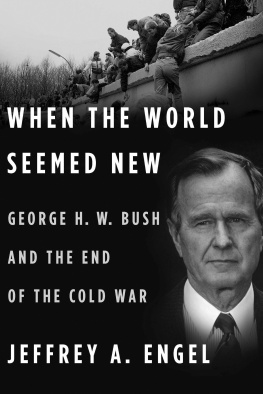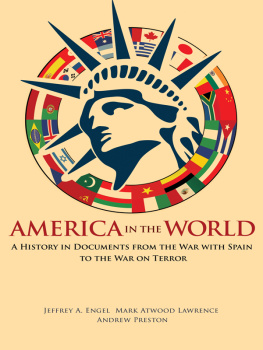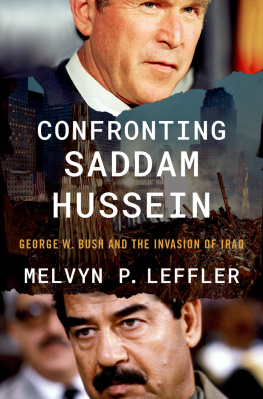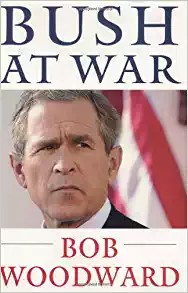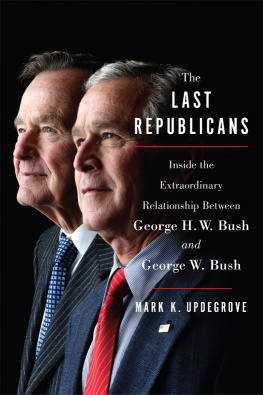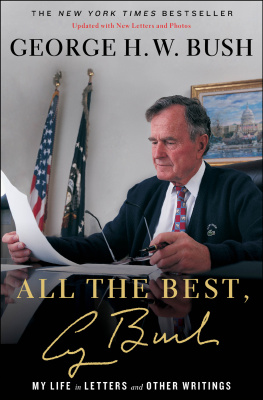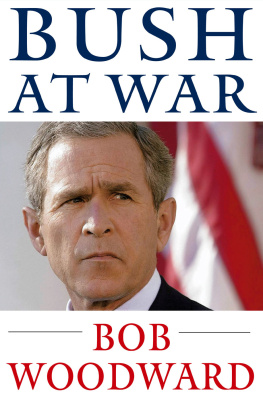Copyright 2017 by Jeffrey A. Engel
All rights reserved
For information about permission to reproduce selections from this book, write to or to Permissions, Houghton Mifflin Harcourt Publishing Company, 3 Park Avenue, 19th Floor, New York, New York 10016.
www.hmhco.com
Library of Congress Cataloging-in-Publication Data is available.
ISBN 978-0-547-42306-7
Cover design by Brian Moore
Cover photographs Rainer Unkel REA / Redux (George H. W. Bush); Steve Eason / Hulton Archive / Getty Images (Berlin Wall)
Author photograph Hillsman S. Jackson
e ISBN 978-0-544-93184-8
v1.1017
This book is dedicated to my mentors:
to Walter LaFeber
who taught me history
to Tom McCormick
who taught me to think
to Richard Immerman
who taught me to care
and to Lory and Toby Engel
who taught above all else by loving example
We have it in our power to begin the world over again. A situation, similar to the present, hath not happened since the days of Noah until now. The birthday of a new world is at hand, and a race of men, perhaps as numerous as all Europe contains, are to receive their portion of freedom from the events of a few months.
Thomas Paine, 1776
I come back to the word of prudentmanaging of what we do and what we sayand resist flamboyant actions. Things are moving our way... Democracy? Freedom? They are moving our way. And so, we dont need to be out there trying to micromanage the desire for change.
George H. W. Bush, 1991
Introduction
HE HAD NEVER SEEN anything quite like it. Onlookers cheered the armored motorcade as it barreled through the streets of Washington, D.C. They waved flags and rhythmically chanted his name. The energy was electric. George Bush had seen crowds before. Vice president for almost seven full years by 1987, he had witnessed inaugurations and national political conventions, military parades and Super Bowls. He had thrown out more first pitches than he could count. He had heard cheering his entire life.
But not like this. And never for him. The masses were screaming for the other man in the backseat of their limousine: Mikhail Gorbachev, general secretary of the Communist Party of the Soviet Union, arguably the most popular man in the world. Americans were cheering the communist as if he were a rock star. Perhaps they were right to be so enthusiastic. In little more than two years in office, Gorbachev had transformed his country, and prospects for global peace, fundamentally changing the tone and tenor of the Cold War between the United States and the Soviet Union that had raged for four decades, more than once bringing humanity to the brink of nuclear annihilation.
Those days now seemed past because of him. Gorbachev had started nothing less than a revolution throughout the communist world. He called for perestroika: a general reconstruction of Soviet communism complete with increased political and economic freedom for his people. He offered glasnost: a new openness for a Soviet society long governed by secrecy and fear. Each catalyzed latent democracy movements throughout Moscows empire, prompting even hard-line anticommunists like President Ronald Reagan to accept that Gorbachev was a new kind of leader. The whole world seemed new again, and poised to enter a new democratic future.
Gorbachev may have been the Prometheus of his age, but he was also perpetually behind schedule. This morning was no different. Tasked with delivering their guest from the Soviet embassy to the White House, Bush waited impatiently. Gorbachevs handlers first asked him to sit in an anteroom while their boss finished his morning meetings. When those sessions stretched on, they suggested perhaps the vice president might prefer simply to proceed without him. Bush refused. Vice presidents were rarely made to wait. Neither were presidents, and Reagan was waiting too. More important, Bush had lobbied for weeks for this opportunity to be seen at Gorbachevs side, and he was not about to let the chance for that ideal photo op evaporate merely because he had to cool his heels for a few moments more. Bush wanted to be president. He had been preparing for that job his entire life. His campaign to succeed Reagan was about to kick off, and he needed voters to see him not merely as a loyal underling but as a global leader in his own right. So he waited.
Plus, he had a message to deliver. Election season would soon be heating up, he told Gorbachev when the pair finally made their way into the back of the Soviet limousine for the short drive across downtown Washington. Only a translator rode with them. They had met two years before, though only briefly, during the funeral for Gorbachevs predecessor. Bush had been to many Soviet funerals over the years, and they were always hectic affairs. This was their first time alone. The campaign would be filled with strong, hardline statements from all kinds of sources about US-Soviet relations, he noted. Gorbachev should not pay too close attention.
The Soviet leader didnt seem to be paying attention now, either. Instead, he was fixated on the teeming crowd chanting his name. Bush plowed on. Recalling one of Chinese leader Mao Zedongs favorite phrasesand one of his own after serving as Washingtons chief diplomat in Beijing more than a decade beforederiding empty cannons of rhetoric, Bush warned Gorbachev not to take his campaign statements too seriously. He would have to say and do all sorts of things to get elected. This was how things were done in America. Politicians played to the crowd.
Gorbachev nodded but continued to stare silently into the masses of humanity just outside the car. Bush wondered if perhaps the translator had delivered the message incorrectly. He wondered if Gorbachev was even listening at all.
Suddenly the Russian leaned forward. Stop the car! Gorbachev ordered his driver. Tires screeched. The limousines doors flew open, and Gorbachev threw himself directly into the nearest throng. Soviet and American security personnel screamed into their handsets and scrambled to catch up. Before Bush truly knew what was happening, his companion was engulfed by the ecstatic mob. Gorbachev smiled and shook hands like a man who had been kissing babies and wooing voters his entire life.
In a flash he was at Gorbachevs side, lest he fail to appear in photos sure to run in the next days newspapers. Do you do this a lot? Bush gasped when the two finally tumbled back into the safe confines of their car. Flush with adrenaline, Gorbachev nodded. Leaders should be equal to the people, he said. His twinkling gray eyes told Bush that Soviet leaders could be unpredictable. And that they too could deliver messages.
It was not an auspicious beginning to their relationship. Neither man truly heard the other. Each instead seemed primarily interested in proving his own importance. Like new rivals in a schoolyard, the worlds largest, they seemed interested most of all in intimidation.
Their relationship would in time help ease the world through one of the twentieth centurys most perilous periods. Within a year Bush would be president. Within two the Cold War would effectively be over. Within three the Soviet Union would be gone, and European communism with it. No one was predicting these events in 1987, and it was unthinkable that they might be accomplished with little bloodshed. Empires rarely ceded power gracefully. Collapsing great powers typically leave wars in their wake. Plus, the Soviets were different. Empires had risen and fallen for millennia. Never before in human history had a great power broken apart with more than twenty thousand nuclear weapons in its midst, enough firepower to end all of human life. There were no helpful precedents for what Bush eventually faced as president, and no guarantees it would all end well.
Next page
